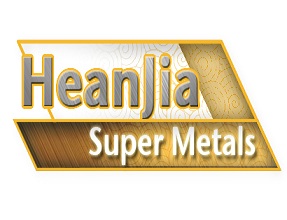You are here: home > Incoloy News > Hot and cold processing features of Incoloy 800H and 800HT
Product (738)
- Pure Nickel Products (38)
- Incoloy Products (74)
- Inconel Products (72)
-
FeCrAl Product
(99)

-
Nichrome Products
(68)

- Monel Products (36)
- Hastelloy Products (49)
- Nickel Iron Alloy Product (59)
-
Nickel Copper alloys
(47)

- Nonferrous Metal Product (27)
-
Resistance Wire
(90)

- Stainless Steel Product (42)
- Mesh Demister (20)
- Others (17)
Product Forms (14)
Quality Certificate (11)
Learning Gallery (30)
Incoloy News (9)
Inconel News (22)
Molybdenum News (7)
Nikrothal News (4)
Nichrome News (13)
Titanium News (2)
Nickel News (8)
Alloys House (30)
Tools (27)
Nickel alloy News (30)
Latest Buzz (30)
nickel chrome copper iron alloys news (28)
Credit Report
Products Index
Company Info
Heanjia Super-metals Co., Ltd. [China (Mainland)]
Business Type:Manufacturer, Trading Company
City: Beijing
Province/State: Beijing
Country/Region: China (Mainland)
Incoloy News
Hot and cold processing features of Incoloy 800H and 800HT
The complete temperature control in bending is the very crucial factor in obtaining the warm malleability. The advanced heating of all equipments and dies at temperatures of 500oF or 260oC is preferred to prevent the cooling of Incoloy 800H and 800HT wire during processing. The severe forging should not be performed quickly as it makes the meal overheated. In the warm bending processes, the metal should be treated quickly subsequent to removing from the furnace to reduce the surface quenching prior to completion of bending.
The hot preparation temperature range of Incoloy 800H and 800HT alloy wire is 1600oF to 2200°F or 870oC to 1200oC. The severe forging should be performed at temperature below to 1850oF or 1010oC and the slight processing should be done at temperature below to 1600oF or 870oC. The no processing can be done at 1200oF to 1600oF or 650oC to 870oC. The quenching rate of alloy subsequent to hot processing is not decisive for incoloy alloys corresponding to thermal rupturing. Though the alloys are set for carbide precipitation at temperatures about 1000oF to 1400oF or 540oC to 760oC and should be quenched immediately by following the range to obtain the required sensitization.
The hot preparation temperature range of Incoloy 800H and 800HT alloy wire is 1600oF to 2200°F or 870oC to 1200oC. The severe forging should be performed at temperature below to 1850oF or 1010oC and the slight processing should be done at temperature below to 1600oF or 870oC. The no processing can be done at 1200oF to 1600oF or 650oC to 870oC. The quenching rate of alloy subsequent to hot processing is not decisive for incoloy alloys corresponding to thermal rupturing. Though the alloys are set for carbide precipitation at temperatures about 1000oF to 1400oF or 540oC to 760oC and should be quenched immediately by following the range to obtain the required sensitization.
The quenching subsequent to hot processing can be done by the air cooling. The heavy parts may be sensitized while the cooling from the hot processing temperature and these become prone to intergranular corrosion in the various corrosive media. The incoloy alloys similar to stainless steel alloys are austenitic and possess face centered cubic structure. The austenitic alloys need larger force form deformation as compare to the ferritic alloys. This is due to the presence of crystallographic planes in incoloy and high ductility. During annealing, the ratio of tensile force to the yield force is higher and more than two. Therefore the incoloy alloys need large cold processing prior to annealing. The work toughing rate of Incoloy 800H and 800HT alloy wire are slightly lower as compare to popular classes of austenitic steels.
The special annealing processes are followed for incoloy 800H and 800HT alloys on the base of amount of cold processing required to obtain the grain size and cross section of alloy. The mechanical properties of the large cold processed alloy are minor influenced at temperatures lower than 1000oF or 540oC. The stress freedom is also started at the same temperature and it is virtually accomplished after1600°F (870°C) for an adequate time with required width. For example a general guideline for the stress relief for the plate products is 1 hour per inch of width. The stress relief normally takes more time as compare to recrystallization annealing.
The Incoloy 800H and 800HT alloy wire are produced for applications at the high temperatures. The appropriate resistance to creeping at the high temperatures is received by heating for grain development. The heating temperature is 2100oF to 2200oF. The dimensions and furnace features are adjusted to receive the grain size. The temperature and time are also adjusted to restrict the wider grain development because slight creeping force is obtained with the more grain development.
Pre Page:
Annealing of Incoloy 800H and 800HT...
Next Page:
Incoloy 800H and 800HT-Resistance to...
.gif)


